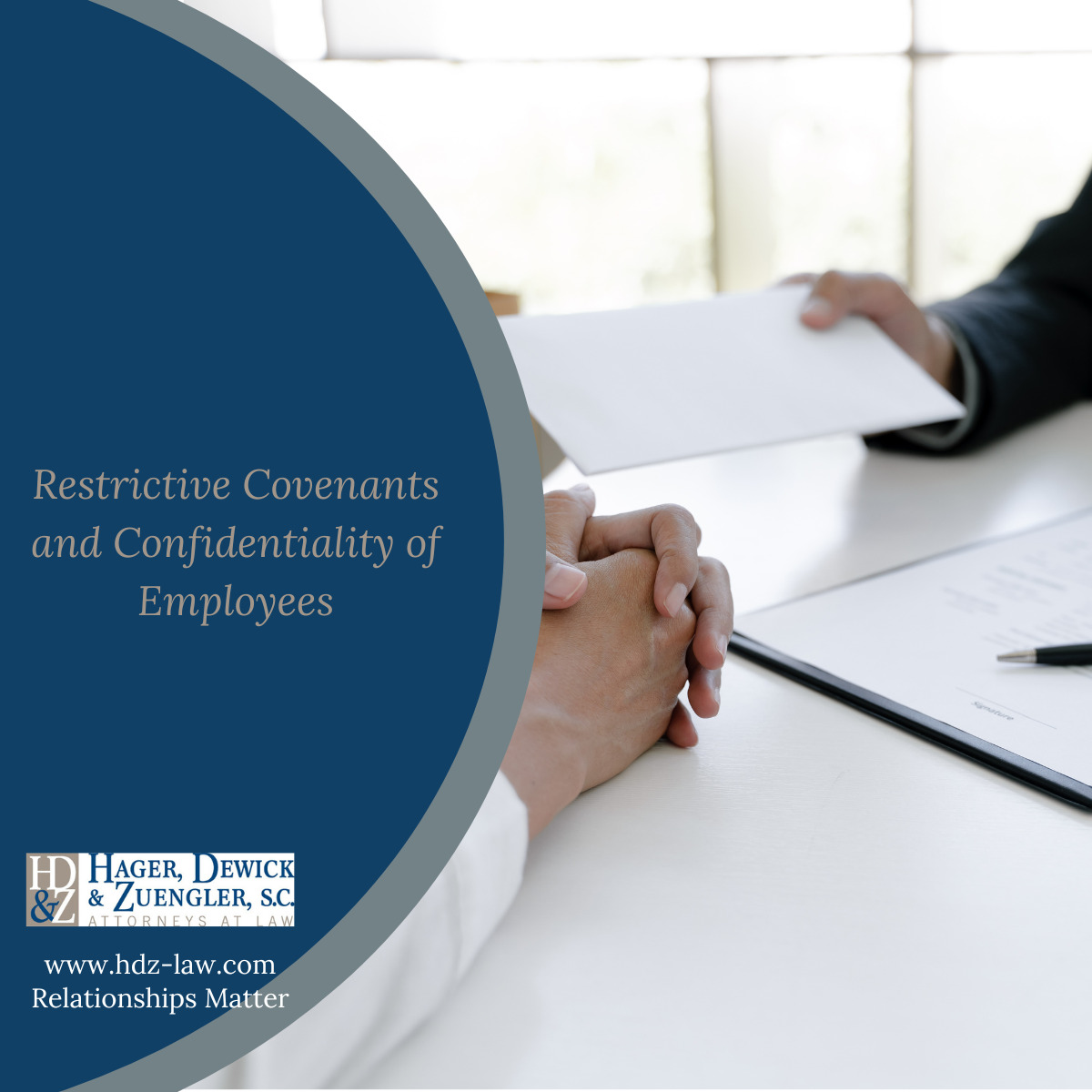
States across the country are cracking down on the enforceability of restrictive covenants in employment agreements, including non-competition, non-solicitation, and confidentiality provisions. States vary in their enforceability of restrictive covenants, and the level of restriction that is allowed differs in each state. Recently, the Federal Trade Commission (“FTC”) proposed a federal ban on non-competition clauses, and potentially other restrictive employment covenants, that would make them illegal. The FTC is set to consider the proposed ban in April of 2024.
In July, 2022, Wisconsin jumped on the bandwagon of restricting the enforceability of confidentiality clauses in employment agreements in Diamond Assets LLC v. Godina, 2022 WI App 47, 404 Wis.2d 404, 979 N.W.2d 586 (Wis. App. 2022). Godina terminated his employment with Diamond Assets LLC (“Diamond”), and emailed “Confidential Information,” as it was defined in his employment agreement, to a third party the day after his termination. Diamond brought an action against Godina for breach of contract, while Godina filed a motion to dismiss on the grounds that the restrictive covenants were unenforceable.
Wisconsin’s legal standard for the enforceability of restrictive covenants in employment agreements is governed by Wis. Stat. §103.465. The statute provides that any employer seeking to enforce a restrictive covenant has the burden to show that the covenant is reasonable in all aspects. The covenant must show that the restrictions: (1) are necessary to protect a competitive interest of the employer; (2) have a reasonable time limitation; (3) have a reasonable territorial/geographic limitation; (4) are not overly harsh or oppressive to the employee; and (5) are reasonable to the general public and not contrary to public policy.
The Court separated its analysis of the Diamond restrictive covenant into three distinct sections: (1) information specifically “included” in the definition of “Confidential Information”; (2) information specifically “not included” in the definition of “Confidential Information”; and (3) the other “duties and obligations concerning confidential information” found throughout the remainder of the confidentiality provisions. The confidentiality covenant states that “Confidential Information” will include: “all data and information relating to the business and management of Employer….” The Court ruled in favor of Godina, stating that this clause would include any and all information related to Diamond, whether reasonably protectable or not.
The purpose of defining and listing what constitutes “Confidential Information” under an employment agreement is to limit and narrow the scope of what information the employee cannot disclose. Godina’s employment agreement included these terms, but the Court took issue with their definitions, and found that the terms defining “Confidential Information” further broadened the definition, rather than limited it. Included in the “Confidential Information” limiting definition was Employer’s “Business Operations,” which was later defined in the agreement as “operational information, including but not limited to … the manner and methods of conducting Employer’s business.” The Court ruled that this definition is virtually unlimited, and if enforceable, would make Godina liable for sharing any detail of Diamond’s workplace and operations. For example, the Court stated that as drafted, Godina’s restrictive covenant would prohibit sharing the types of pens that are purchased by Diamond. The Court reasoned that Diamond has no competitive advantage in keeping the pens it purchases confidential, and therefore, the restriction is overbroad. For these reasons, the Court ruled that the confidentiality covenant was in violation of Wis. Stat. §103.465, and thus unenforceable.
From a practical standpoint, the Diamond Assets case is the most recent case to further restrict the enforceability of confidentiality provisions and other restrictive covenants often contained in employment agreements. According to the Wisconsin Court of Appeals, to be enforceable, confidentiality provisions must clearly outline what information constitutes “Confidential Information”, what information is not included in that definition, and how the protection of such information is necessary for employers. Employers should take extra care in what they deem “confidential”, and the extent of restrictions that are outlined in restrictive covenants of their employees’ employment agreements. In addition, employers should work with legal counsel to ensure that their confidential information is protected, and that any restrictive covenants contained in its employment agreements are not overbroad or unenforceable under Diamond Assets and the statutes.
For more information, contact us at 920-430-1900.
